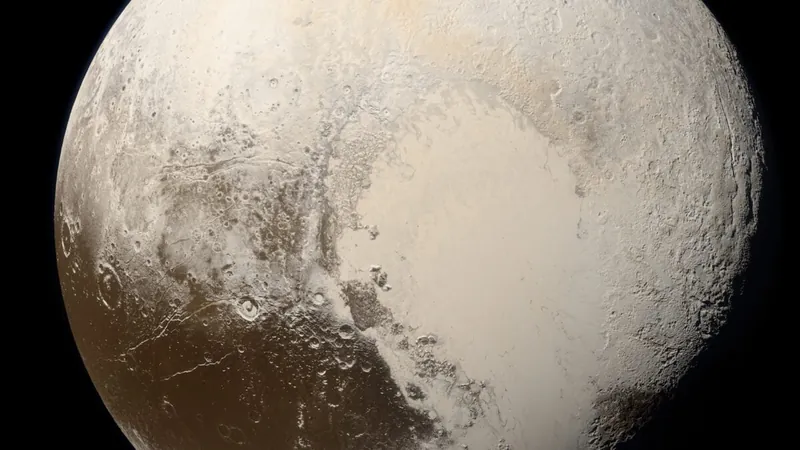
Is NASA's New Horizons Mission Facing an Unceremonious End?
2025-07-15
Author: Lok
A Historic Journey at Risk
Back on July 14, 2015, NASA's New Horizons spacecraft accomplished the extraordinary by flying past Pluto, unveiling breathtaking views of this enigmatic icy world. As we celebrate a decade since this groundbreaking encounter, the mission now faces an unsettling threat due to proposed budget cuts.
Funding Cuts Looming
NASA's future looks grim with the White House's recent budget proposal, which slashes a whopping $6 billion from the agency's upcoming budget. This means NASA's planetary science budget would plummet from $2.7 billion to just $1.9 billion, jeopardizing numerous ongoing and future missions, including New Horizons.
A Mission Almost Lost
Launched on January 19, 2006, New Horizons navigated a staggering 9 billion miles to become the first spacecraft to reach Pluto. However, its path to success was anything but smooth—advocates fought tirelessly for nearly 20 years to secure its approval as initial funding concerns deemed it “too costly.” In 2002, the mission nearly got the axe after the White House attempted to cancel it mid-development, but a strong outcry from the scientific community rallied Congress to restore its funding.
Revolutionary Discoveries
Despite its tumultuous beginnings, New Horizons has gravitated into one of the most triumphant planetary missions. Its groundbreaking observations revealed that Pluto and its moons are far more intricate than expected, showcasing a huge heart-shaped icy plain possibly resting atop a subsurface ocean, along with cryovolcanoes that hint at geological activity.
Exploring Beyond Pluto
But the journey didn't end there! New Horizons has continued to voyage through the outer solar system, conducting the most distant flyby of a Kuiper Belt object, Arrokoth, in January 2019—a frozen remnant from early solar system history. This success extended its mission, allowing it to push on until leaving the Kuiper Belt in 2029, while still tantalizingly beckoning more mysteries.
Important Questions Await
Nicola Fox from NASA's Science Mission Directorate emphasized the mission's crucial role in solving significant heliospheric questions, showcasing its unique value to scientific exploration. Right now, New Horizons is on the lookout for its next target, with enough fuel to take on another thrilling flyby.
A Potential Data Blackout
However, the shadow of budget cuts looms large. If the proposed financial reductions are finalized, New Horizons may be powered down well before its time, depriving the scientific community of precious data and discoveries. As the third most distant human-made object from Earth, losing New Horizons would also mean years waiting for another spacecraft to reach such territories—if any are even planned.
Alan Stern, the principal investigator for New Horizons, expressed the gravity of the situation: "We’re the only spacecraft out there. There’s nothing else planned to come this way." The fate of this iconic mission now hangs in the balance.


 Brasil (PT)
Brasil (PT)
 Canada (EN)
Canada (EN)
 Chile (ES)
Chile (ES)
 Česko (CS)
Česko (CS)
 대한민국 (KO)
대한민국 (KO)
 España (ES)
España (ES)
 France (FR)
France (FR)
 Hong Kong (EN)
Hong Kong (EN)
 Italia (IT)
Italia (IT)
 日本 (JA)
日本 (JA)
 Magyarország (HU)
Magyarország (HU)
 Norge (NO)
Norge (NO)
 Polska (PL)
Polska (PL)
 Schweiz (DE)
Schweiz (DE)
 Singapore (EN)
Singapore (EN)
 Sverige (SV)
Sverige (SV)
 Suomi (FI)
Suomi (FI)
 Türkiye (TR)
Türkiye (TR)
 الإمارات العربية المتحدة (AR)
الإمارات العربية المتحدة (AR)